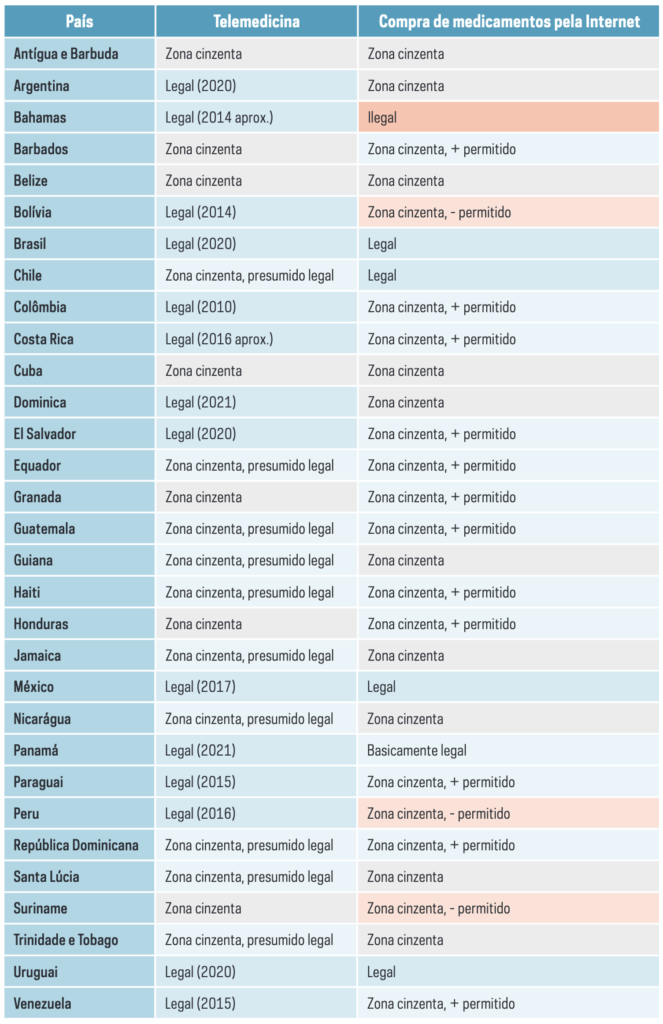The Legal Status of Telemedicine Across the Countries of the Region
15/01/2024

By Carolina Badano, Communications Coordinator at LACNIC
This project received an award from the FRIDA Program, 2021 Edition.
What is the legal status of telemedicine in Latin American and Caribbean countries? Is it legal to sell medicines online in the region?
Mark W. Datysgeld and Christiane Tavares F. da Silva studied these two issues in their study on Access to Online Health Solutions, which received support from the 2021 LACNIC’s FRIDA Program. Additionally, Mark had his initial engagement with LACNIC when he was chosen by the LACNIC’s Líderes Program to conduct research on digital policies within the region.
The aim was to create a report that would enable those responsible for shaping policies in the LAC region, along with the society in general, to visualize the current situation. Also, it aimed to kickstart a productive debate on this topic in various Internet Governance spaces. Mark shared that the project caught the attention of organizations actively addressing the issue of online sales involving counterfeit and illegal medicines. This led to a partnership with CleanDNS, an organization offering services to registries and ISPs to prevent the spread of malicious websites. “Today, we are assisting them in developing human rights-centered standards to effectively carry out this fight,” emphasized Mark.
The study focused on two main issues investigated in countries with over 120 thousand inhabitants in the region:
- the legal status of telemedicine
- and the online sale of medicines.
Most of the countries under study fall into a ‘grey area’ in relation to telemedicine (see Table 1). This means that citizens can somehow engage in remote consultations, which shows the significant impact of the COVID-19 pandemic in this field. However, there are certain legal gaps that may not fully ensure the rights of both patients and professionals.

When it comes to buying medicine online, most of the investigated countries offer some form of home delivery service, although the legal frameworks vary significantly. In a minority of countries, there does not seem to be a direct concern about the legality of the online sale and delivery practice.
Another important finding from the study is that the availability of delivery services varies significantly between the capital and the rest of the locations within each country, where availability depends on the initiative of the pharmacies in each region.
In relation to the purchase of prescription medicine, a study by Rojas-Cortés highlighted a considerable volume of low-quality or counterfeit drugs. Also, governments showed considerable variation in their ability to identify and address these situations. This scenario is crucial in the development of black markets to acquire medicine.
In conclusion, although telemedicine and the legal sale of medicines mark significant progress in healthcare accessibility, the existence of grey areas raises concerns about the safety of both patients and healthcare professionals.
The COVID-19 pandemic noted the need for regulation, but it is also necessary to continue working to make these services more accessible. The Internet community plays an essential role in achieving this.
For more information on the topic, you can visit https://governanceprimer.com/